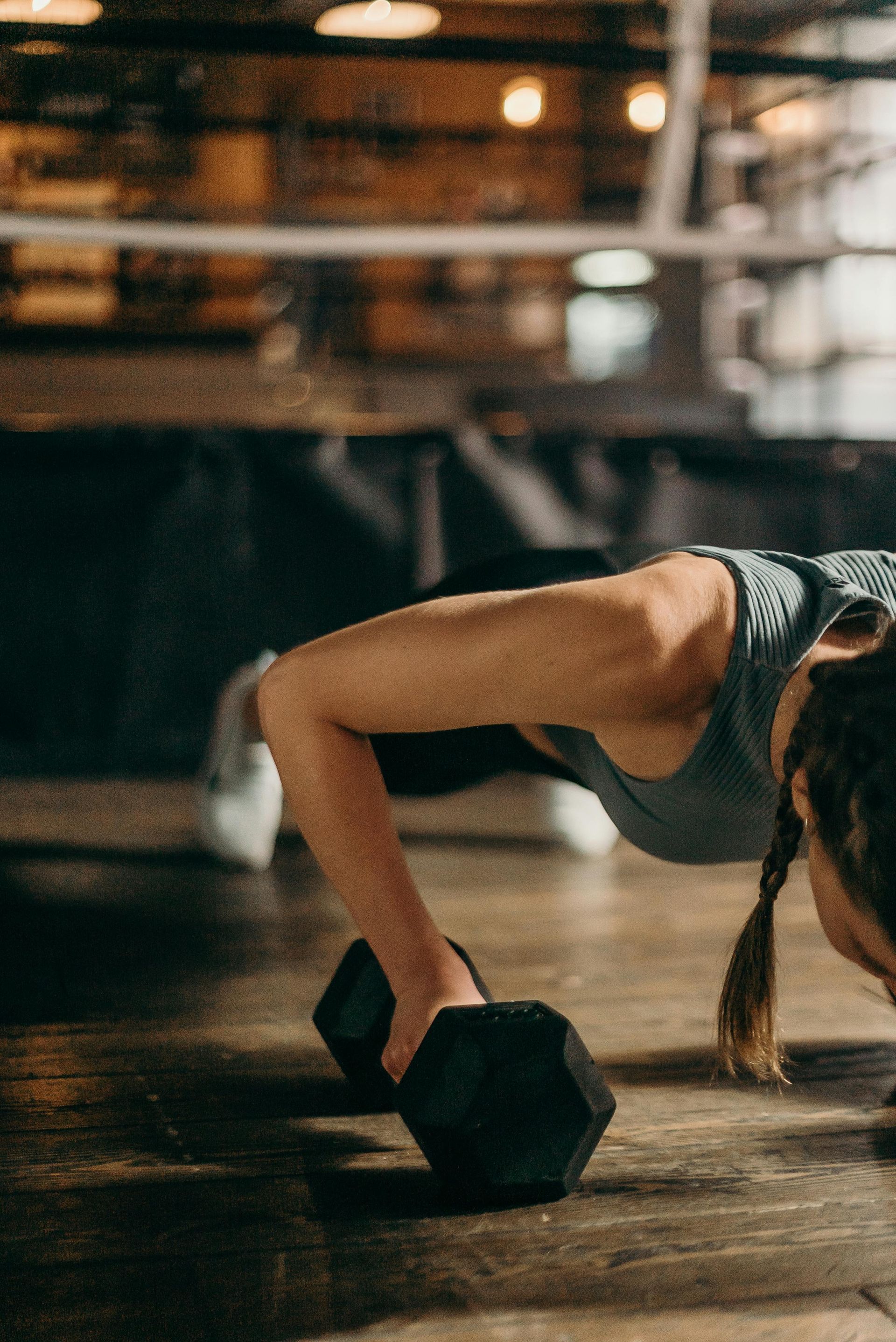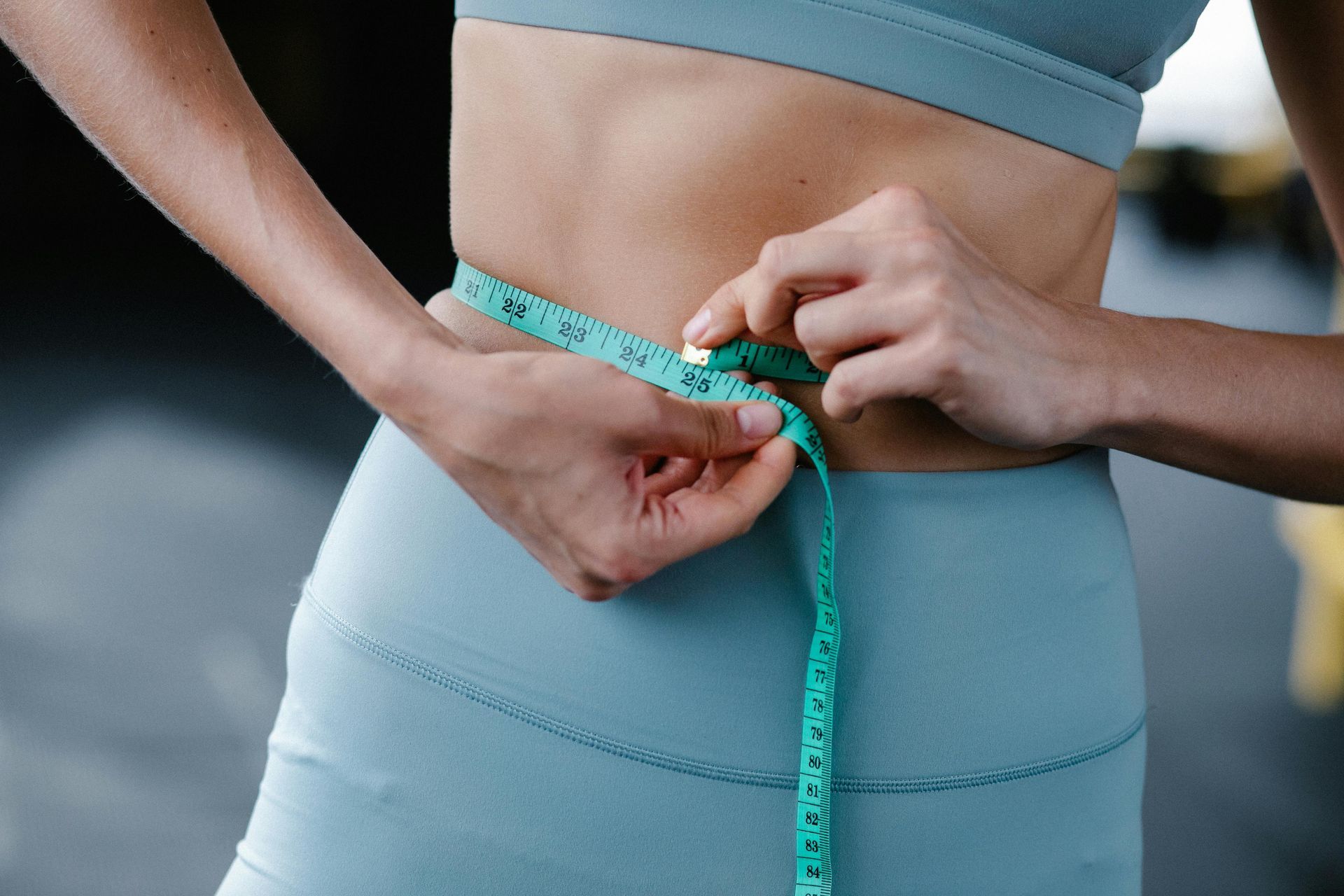Exercise & Hormones: How to Train Smarter for a Balanced Body
We all know exercise is good for us - And we all know that there are loads of benefits, right?! It can boost energy, improves mood, and keeps our bodies strong. But have you ever found that workouts that you’re doing just leave you more exhausted, and that you’re suddenly making a grab for all those snacks that you know aren’t the best food choices?

We’ve been there, and so has basically every woman who went through menopause! We thought this would be a helpful conversation for us to have and provide insight into, because while most of us know how important exercise is, did you know that the type of exercise you do can have a direct impact on your hormones?! Whether you’re struggling with fatigue, stubborn weight gain, or mood swings, or perhaps you already know your hormones are a bit out of whack - your workout routine could either be helping or hurting your hormonal balance, and therefore often your outlook on your entire day!
At our Green Cove Springs Florida practice, we take a functional medicine approach to whole-body wellness, helping people understand how movement, diet, and lifestyle all work together to create better holistic health. And when it comes to hormones, not all workouts are going to benefit you in the same way… In fact some things you do can be counterproductive. So let’s talk about the best (and worst!) ways to exercise for hormonal balance and how you can start moving smarter to live better!
How Exercise Affects Your Hormones
Your hormones act as chemical messengers, regulating everything in your body from metabolism and stress to sleep and reproductive health. The way you exercise can either support or disrupt this delicate balance. Here are some of the key hormones that fit into this balance:
- Cortisol (The Stress Hormone) – Some stress is good (for example in an emergency situation), but constantly high levels of cortisol can cause energy burnout, weight gain, inflammation, and fatigue. This is an important fact to keep in mind, as overtraining or high-intensity workouts during menopause without enough recovery can keep cortisol levels high, leading to hormonal chaos and literally the opposite results of the ones we actually want to achieve!
- Insulin (Blood Sugar Regulation) – Strength training and moderate cardio improve insulin sensitivity, helping your body use glucose more efficiently and can reduce the risk of weight gain.
- Estrogen & Progesterone (Female Hormones) – Exercise helps keep a good balance of estrogen and progesterone, but excessive endurance training can sometimes cause imbalances, particularly in women.
- Testosterone (Muscle & Energy Booster) – Strength training naturally boosts testosterone, which supports muscle growth, energy, and libido - This is important for both men and women.
- Growth Hormone (Repair & Recovery) – Released during deep sleep and exercise, this hormone is essential for muscle repair, fat metabolism, and overall vitality.
So, what’s the best way to move for the health of all these hormones? Let’s chat about your best options:
The Best Workouts for Hormone Balance
1. Strength Training (Weight Lifting & Resistance Workouts)
- Supports testosterone and growth hormone production
- Helps regulate insulin and prevents muscle loss (incredibly important as we age!)
- Boosts metabolism and supports long-term weight management (muscle mass is a big component of metabolism).
Focus on compound movements like squats, deadlifts, and push-ups, which target multiple large muscle groups (these are the best bang for your buck also!) Aim for 2-4 strength workouts per week to see the best results.
2. Low-Impact Cardio (Walking, Cycling, Swimming)
- Keeps cortisol levels steady (unlike excessive high-intensity training)
- Supports heart health and circulation
- Helps regulate insulin and blood sugar levels
Something as small as a 30-minute walk after meals can improve insulin sensitivity and digestion overall - This is something we recommend to many of our patients in Green Cove Springs and Jacksonville who are working on hormone health and weight loss.
3. Yoga & Pilates (Stress-Reducing & Core Strengthening)
- Lowers cortisol and promotes relaxation
- Supports adrenal health and reduces symptoms of hormonal imbalance
- Improves flexibility and posture while strengthening core muscles
If stress is a big factor for you, the breathwork components of 20-30 minutes of yoga or Pilates a few times a week can make a noticeable difference in your energy and mood!
4. Interval Training (Short Bursts of Exercise, HIIT (high intensity interval training), Sprints)
- Increases insulin sensitivity and fat-burning potential
- Boosts testosterone and growth hormone in very short sessions
- Can improve your endurance without overloading cortisol levels
Keep HIIT sessions to 2-3 times per week and pair them with rest days or low-impact movement to avoid hormone burnout.
What Workouts to Avoid (or Use in Moderation)
Chronic Cardio (Too Much Running or Endurance Training) – If you’re spending hours on the treadmill but still feeling exhausted, bloated, or stuck at a weight plateau, overdoing cardio is a big factor to consider. You shouldn’t be finding yourself running longer and longer to maintain your weight. Long sessions of steady-state cardio can increase cortisol and burn through muscle instead of fat, literally doing the opposite of what you are trying to achieve!
Excessive High-Intensity Training (HIIT Every Day) – While HIIT is great in moderation, daily intense workouts can spike cortisol and lead to adrenal fatigue. If you love HIIT, make sure you are balancing it with other forms of less intense movement.
Support Your Workouts with Functional Medicine
Exercise is just one piece of the hormone balance puzzle. At Unique Health, we focus a whole-body approach to better health. Along with customized workout recommendations, we offer:
Hormone Replacement Therapy – If your body isn’t producing enough estrogen, progesterone, or testosterone, we offer tailored hormone therapy plans to restore balance. Learn more here.
IV Hydration Therapy – Need a recovery boost after workouts? IV therapy replenishes essential vitamins and minerals, improving energy and muscle recovery. Explore our IV therapy options.
Metabolic & Weight Loss Support – If your hormones are working against you when it comes to weight loss, we provide functional medicine solutions to help. Check out our weight loss services.
If you’re ready to feel your best again,
schedule a consultation today and let’s create a plan that works for YOU!









